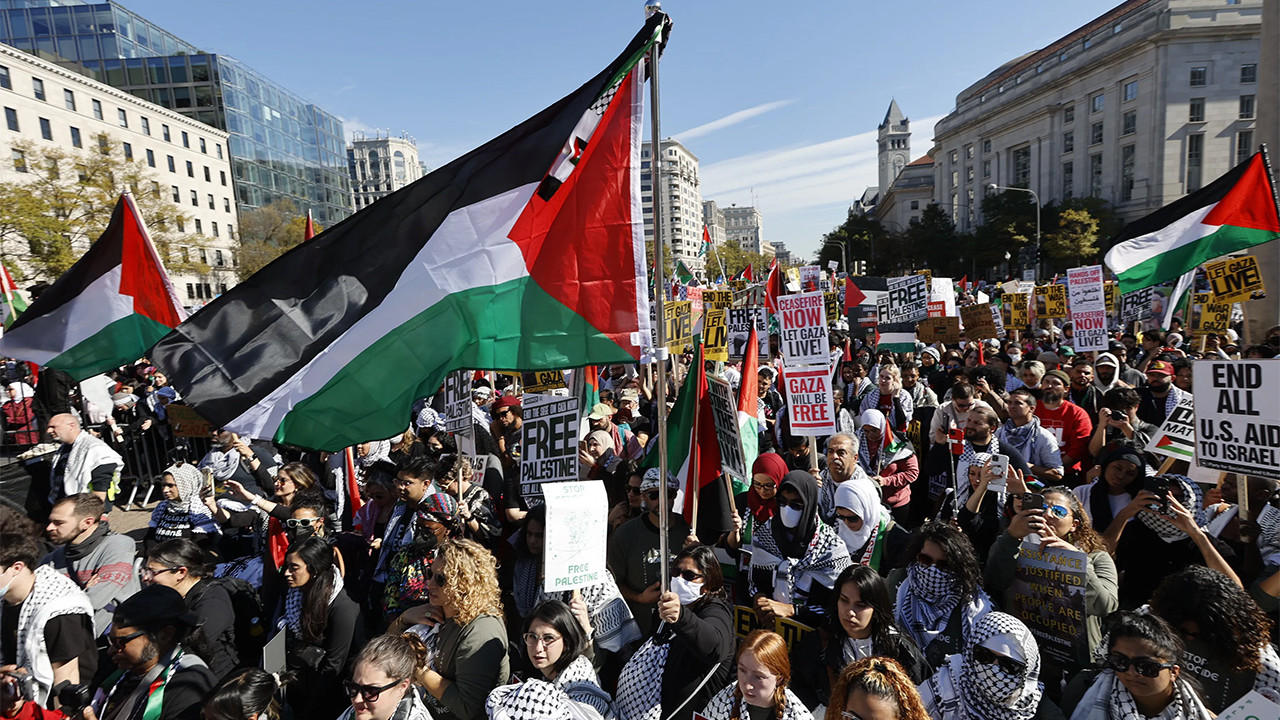Society
Too little, too late
The world’s media are currently focusing on the recognition of Palestinian statehood by several Western European states and Canada. French President Macron has turned this event into a kind of TV series in order to distract the French from the enormous problems facing their country internally.

Many Western European newspapers, in various ways, are emphasizing the “courage” of European leaders who dared to challenge the United States. Washington continues to shield Israel and provide it with massive military aid: recently, for the sixth time in two years, the Americans vetoed a Security Council resolution calling for an end to military action in the Gaza Strip. All this fuss is essentially intended to distract attention from the problems Western powers face domestically.
It’s no coincidence that many Arab political scientists and journalists believe that all this talk of recognizing Palestinian statehood is merely intended to mask the fact that many of these countries financially and militarily assisted Israel in committing genocide. As international law expert Noura Erakat said in an interview with Al Jazeera, “It’s too little, too late.”
A weakening of US support for Netanyahu will force Israel to curb its adventurous militarism.
Most likely, little will change in the short term: arms supplies, security cooperation, and US diplomatic support for Israel will not cease overnight.
Negativity toward Israel is growing in the US
However, a looming shift in public opinion is pushing the US to gradually reconsider its stance on Israel. A recent Pew Research Center poll shows that negative views of Israel have risen from 42% in 2022 to 53% today, with the gap even more pronounced among Democrats, from 53% to 69%. A majority of Americans consider Israel’s ongoing bombing of Gaza unjustified, and 78% of respondents, including 75% of Republicans, favor an immediate ceasefire.
A Harvard-Harris poll conducted in July revealed perhaps the most alarming trend for Israel supporters: 40% of young Americans now favor Hamas over Israel. While this likely reflects a general sympathy for the Palestinians, it reveals serious rifts in the dominant Israeli narrative of “Palestinian terrorism” among American youth.
The same poll found that only 27 percent support Israeli Prime Minister Benjamin Netanyahu, a disastrous vote of no confidence and a far cry from the reception he enjoyed in the White House and Congress.
As older voters—Israel’s last electoral stronghold—give way to younger voters more sympathetic to Palestinian rights, the political math will shift toward a profound change: the question is not whether the United States will reconsider its special relationship with Israel, but how soon. The victory in the Democratic primary of New York City mayoral candidate Zohran Mamdani, a fierce critic of Prime Minister Benjamin Netanyahu, is clear evidence of this.
Israel is quickly becoming a pariah in the international community. It’s noteworthy that more and more artists and creative professionals in the West are speaking out in support of the Palestinian cause while condemning Israeli policies. British pop star Dua Lipa, performing in New York, fired her agent after he signed a letter calling for the exclusion of the pro-Palestinian Irish rap group Knesar from a music festival.
In this regard, one cannot but agree with the opinion of one Russian journalist, who recently said, describing the fight against Israel’s aggressive actions in Palestine, that quantitative changes will inevitably translate into qualitative ones.
Muhammad Amer, Syrian publicist
Follow new articles on our Telegram channel

No comments:
Post a Comment